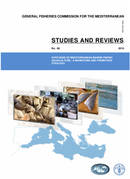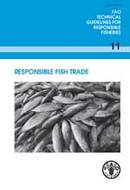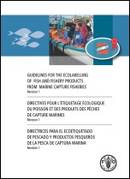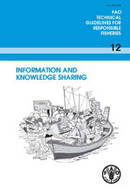出版物
Social and biophysical dimensions of ecosystems are inextricably related such that a change in one dimension is highly likely to generate a change in the other. Although change is a natural consequence of complex interactions, it must be monitored and even managed if the rate and direction of change threatens to undermine system resilience.
"An ecosystem approach to aquaculture (EAA) is a strategy for the integration of the activity within the wider ecosystem such that it promotes sustainable development, equity,...
The purpose of this report is to provide an overview of the marine aquaculture industry in the Mediterranean and its markets based on national country reports submitted by national marketing experts selected in the Mediterranean countries.
This document is an output of the project “Support to the GFCM Working Group on Marketing of Aquaculture Products: Development of a Strategy for Marketing and Promotion of Mediterranean Aquaculture (MedAquaMarket)”. The purpose of this report is to provide an...
The main purpose of these Technical Guidelines is to provide general advice in support of implementation of Articles 11.2 "Responsible international trade" and 11.3 "Laws and regulations relating to fish trade", of the Code of Conduct for Responsible Fisheries. These guidelines assist in the further dissemination, understanding and implementation of the Code of Conduct for Responsible Fisheries worldwide.
The guidelines are particularly important for two reasons: i) fish and fish products are among the most...
The Guidelines for the Ecolabelling of Fish and Fishery Products from Marine Capture Fisheries are of a voluntary nature. They are applicable to ecolabelling schemes that are designed to certify and promote labels for products from well-managed marine capture fisheries and focus on issues related to the sustainable use of fisheries resources. The guidelines refer to principles, general considerations, terms and definitions, minimum substantive requirements and criteria, and procedural and institutional aspects of ecolabelling of...
The Guidelines provide a special focus on information and knowledge sharing and its current and potential role in supporting implementation of the Code of Conduct for Responsible Fisheries. They expand on relevant principles and standards set forth in the Code and make practical suggestions about ways to ensure that this role can be enhanced. The issues involved in the flow of information between different stakeholder groups include topics as diverse as information policy frameworks and...






